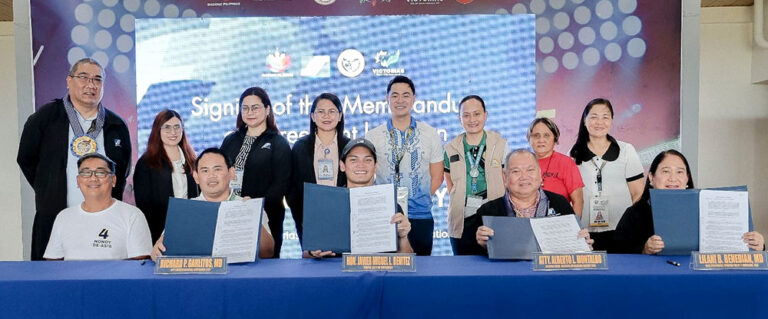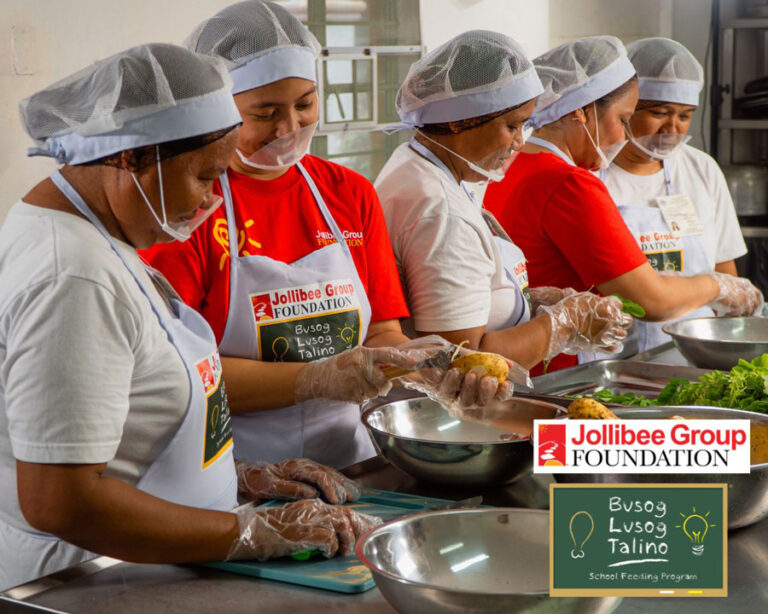DUMAGUETE CITY – Former Chief Justice Reynato Puno – crisscrossing the Visayas in his campaign for Bagong Sistema, Bagong Pag-asa – has proposed a referendum simultaneously with next year’s polls to determine whether Filipinos want to change the 1987 Constitution.
Puno’s proposal came following calls for a constitutional convention to revise the 1987 Constitution. He said this should be put on the ballot in next year’s national elections.
“We are urging our legislators in both houses of Congress to pass a resolution calling for a referendum to determine whether our people want to change the 1987 Constitution in light of our present needs and the necessities of our future,” Puno told separate audiences at the University of San Agustin in Iloilo and Silliman University in Dumaguete.
Puno is touring campuses nationwide under the banner of Bagong Sistema, Bagong Pag-asa, an apolitical movement that advocates, among others, a change in the political structure from presidential-unitary to parliamentary-federal.
He said a referendum in accordance with Article XVII, Section 3 of the 1987 Constitution will serve as a prelude to the calling of a constitutional convention to review and rewrite “the outdated 1987 constitution.”
“An approval by the majority of our people in this referendum will compel our newly elected president and newly elected congressmen and senators after 2016 elections to review and revise our outdated 1987 constitution,” Puno said in a statement sent to the regional newspaper Mindanao Examiner and Cebu Examiner.
He said the 1987 Charter provides that Congress may, by a vote of two-thirds of all its members, call a constitutional convention, or by a majority vote, submit to the electorate the question of calling such a convention.
He said a referendum simultaneous with the elections on May 9, 2016 will put in process the mechanism of consulting Filipinos on such an important undertaking. It will also raise the level of debate in the forthcoming electoral exercise by providing an alternative issue that the electorate can ask the candidates, the movement added.
Puno said there are many compelling reasons for changing the 1987 Constitution, but one irrefutable reason is “to remedy the continuing inability of government to give real equality to our people because of a constitution that is out of step with the times, a constitution that has lost its conscience for the poor.”
He said the Philippines ranks 42nd among 101 countries in Oxford University’s multi-dimensional poverty index, which showed, among other findings, that 11 percent of Filipinos suffer from multi-dimensional poverty—meaning they have poor health or nutrition, lack clean water, electricity, schooling and quality work. It also found that six percent of all Filipinos are vulnerable to poverty (lacking 20 to 33 percent of the essentials of life), 4.7 percent are in severe poverty (lacking 50 percent) and 2.1 percent are “destitute.”
The Philippines has failed to meet the Millennium Development Goal of cutting poverty incidence by half and government spending for social protection programs—about 2.5 percent of gross domestic product— remains below the Asian average, Puno noted.
Despite the grim scenarios, some efforts to uplift the life of the poor have been rendered naught by the 1987 Constitution, Puno said, citing the recent Malacanang veto of the Magna Carta for the Poor and the Internally Displaced Persons Act of 2015, which would have made socioeconomic rights somehow enforaceable in courts.
In vetoing the two measures, Malacanang cited several reasons, one of them that socioeconomic rights are not demandable under the 1987 constitution.
“Admittedly there are many causes why the poor stay poor in the Philippines, but one of these is our outmoded constitution,” Puno pointed out. “Our constitution enumerates the may socioeconomic rights of the marginalized like the right to housing, the right to education, but this constitution failed to make them demandable or enforceable against the government. In other words, they are mere paper rights. The solution therefore is to rewrite our 1987 constitution to make these socioeconomic rights at par with our civil and political rights by making them part of the Bill of Rights.“
He said this is not new, as it has been done in South Africa, which has put socioeconomic rights alongside civil and political rights and mandated its government to “take reasonable legislative and other measures to achieve their progressive realization.”
Summing up, Puno declared: “After more than 100 years of independence as a nation, let us perish the thought that progress to our people will come by chance. Our hope lies not in chance. It lies in change—the change of our constitution, the adoption of a constitution with a conscience. (Mindanao Examiner-Cebu Examiner)
Like Us on Facebook: https://www.facebook.com/mindanaoexaminer
Follow Us on Twitter: https://twitter.com/MindanaoExamine
Read Our News on: http://www.mindanaoexaminer.com /http://mindanaoexaminernewspaper.blogspot.com/
Share The News
Follow Us on Twitter: https://twitter.com/MindanaoExamine
Read Our News on: http://www.mindanaoexaminer.com /http://mindanaoexaminernewspaper.blogspot.com/
Share The News



